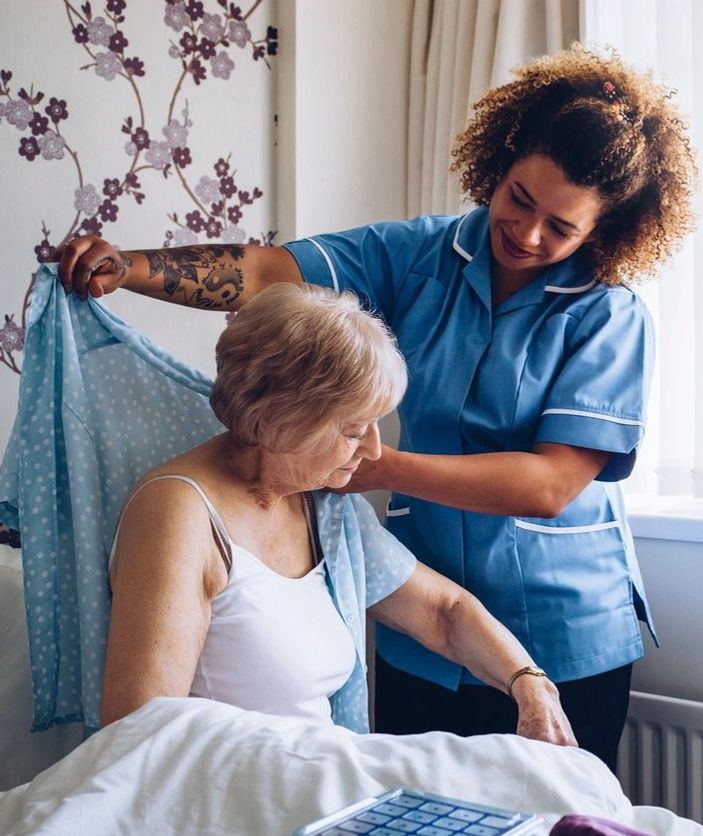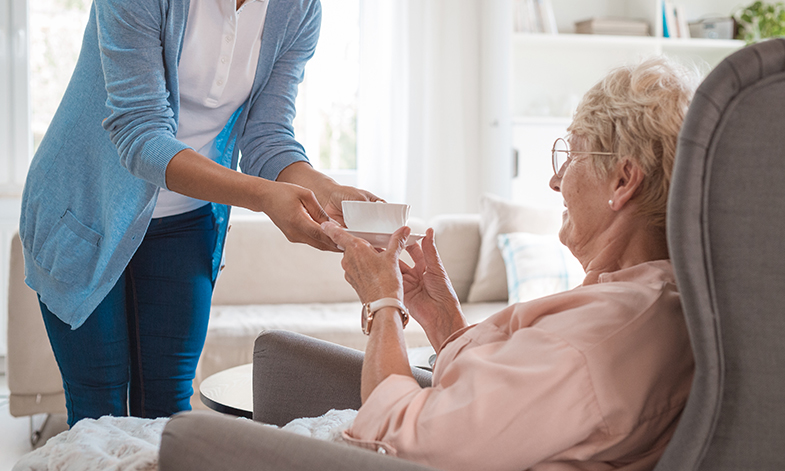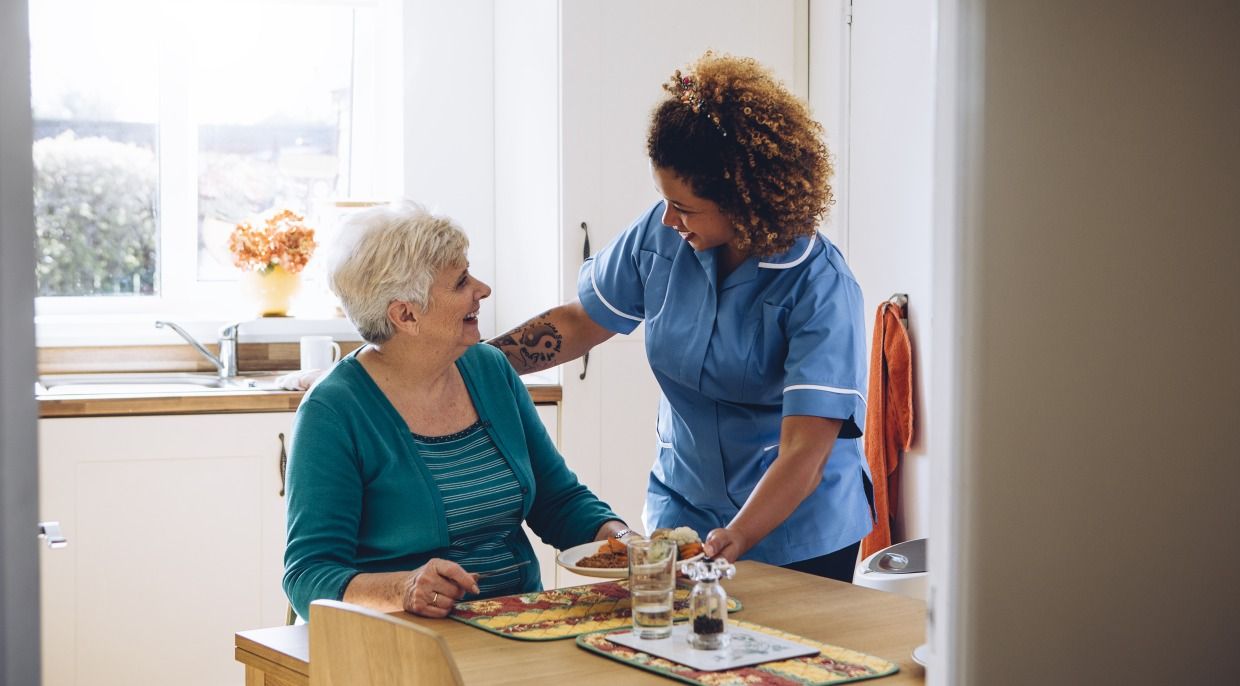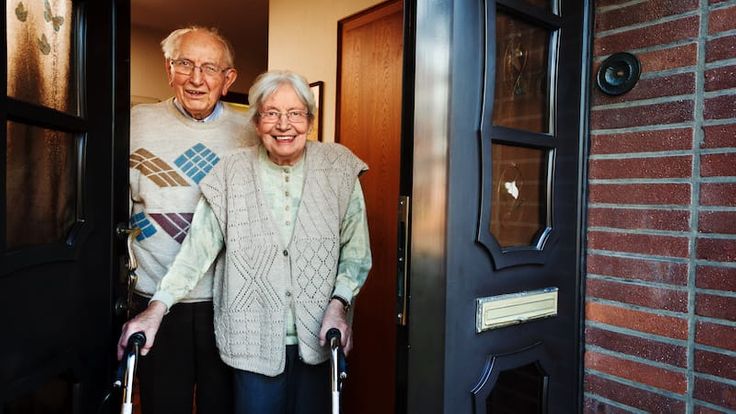Services
Assessment and Support Planning
Prior to or on the first day of your service a full assessment of your needs will be carried out by one of our supervisors. These supervisors are qualified to level 3 NVQ and have vast experience in carrying out assessments and support planning.
You will be fully involved in the assessment and planning of your service to ensure that we are meeting your requirements and all assessments and support plans will be reviewed regularly by us and at your request if required.

Full time caring can become a full time occupation with minimal opportunity to take time for oneself. Striking a balance between caring for somebody and having some quality of personal life may be difficult to achieve.
If you look after a loved one or have a regular care assistant wishing to take a break, or you have been discharged from hospital and need support whilst you recuperate we can offer respite services at your own home.
We support people with activities such as knitting, reading, cooking, using a computer or to continue a hobby.
This service can be for an hour, a day, several days or for a number of weeks. It can on a regular basis or as a one off service to suit your needs. Our staff are highly trained, dedicated professionals and we would endeavour to match their abilities to the needs of the person we are asked to support. We will do our utmost to respond to a service at short notice.
Our live in care assistants attend a full training programme and regular updates to ensure that we can support clients in their own homes. All of our care assistants are fully employed by us giving you the assurance that they are monitored and supervised.
Complex needs are often managed at home. A full assessment of needs would be undertaken for any potential client to identify the appropriate level of support required. All of our staff undertake manual handling training and receive annual refresher courses to ensure they retain their skills and use correct procedures. A manual handling risk assessment is carried out as part of the initial assessment of needs. We advise and involve professional services where necessary to ensure any equipment required is suitable and safe for all involved.
We provide support for all adults, along with any personal care needs our staff are able to undertake everyday household duties, prepare and cook meals and provide companionship.
Our staff are fully prepared and trained to support people that are living with dementia, have had a stroke or living with a chronic condition such as Autism or Diabetes.
Short-term support / Respite at home Full time caring can become a full time occupation with minimal opportunity to take time for oneself. Striking a balance between caring for somebody and having some quality of personal life may be difficult to achieve.
If you look after a loved one or have a regular care assistant wishing to take a break, or you have been discharged from hospital and need support whilst you recuperate we can offer short-term support or respite services at your own home.
This service can be for several days or for a number of weeks, on a regular basis or as a one off service to suit your needs, we would do our utmost to respond to a service at short notice.
Often when a loved one is diagnosed with Dementia, there is a lack of information for those who care for that person and rather than immediately assume this person should go into a care home, we can offer an alternative – to support that person to stay in their home by offering scheduled daily visits or live-in care staff.
People with Dementia are likely to feel more comfortable in their own homes and may be confused by relocation to unfamiliar surroundings. By remaining in their familiar home environment, people are encouraged to continue the things they would previously have done.
We endeavour to maintain continuity of care to reduce what can be a very confusing time for the person with Dementia by providing a small team of staff with whom the service user becomes familiar and the staff can get to know the needs and preferences of that person to fully support them. Continuity is one of the best ways for a person with Dementia to maintain their quality of life.
All our staff attend induction training to heighten their awareness or their responsibilities. We also have set of internal written training guide detailed in supporting people with Dementia. This gives everyone the confidence and competence required to support service users at all stages of dementia.
Subsequently, core members of the staff team are supported to complete further accredited modules of training in dementia which are specialised and in-depth. The specialist team can support service users with more complex needs to remain in their own homes for as long as possible. This may be as the person’s needs change or, if taking medication, prompting and supporting to take medication at the right time and in the correct dosage.
Service users with dementia are supported in the same way as others with regards to their personal care, nutrition and also with mobility difficulties. Dignity and privacy are maintained at all times and service users are assisted with everyday tasks such as dusting, laundry, making a cup of tea, preparation of meals etc so that those skills are maintained for as long as possible.
Any activities which were enjoyed are encouraged and again, support is given to continue those activities i.e. knitting, gardening, arts and crafts, trips out for shopping or just for lunch.
Our staff are committed to the care of all service users so that their quality of life is maintained to the highest level possible. Person-centred care plans are developed and reviewed regularly and service users and their families are actively encouraged to be involved in this process.
We liaise with the service user’s GP, district nursing team, community psychiatric team and, of course, the service user and their family members to achieve the best outcomes for the service user at, what can be, a very difficult time for someone with dementia.
Washing, bathing, dressing and undressing
We can assist with washing, bathing, showering, dressing, undressing and choosing the right clothes.


Care of personal appearance
Washing and grooming your hair, applying makeup, painting nails, shaving, applying cosmetic creams and jewellery.
Bladder and bowel incontinence
Your care assistants are able to help you manage the consequences of bladder and bowel incontinence, whether this is a rare or regular occurrence.


Assist with meals
We can assist you to prepare and cook a meal or we can fully prepare a meal for you. We take into account your dietary requirements, preferences and needs. We can also support with feeding if required. Skin and pressure area care. We will work closely with the Community Nursing Team and follow their guidance to ensure that your skin is kept in as good a condition as possible.
Assisting with mobility
All of our staff are trained to use mobility equipment including: portable or ceiling track hoists, standing hoists, slings, and various small aids such as: turntables, transfer boards, slide sheets, and handling belts.
Your mobility will be continually monitored and reviewed; any change in need will be referred to an occupational therapist, for further assessment.
